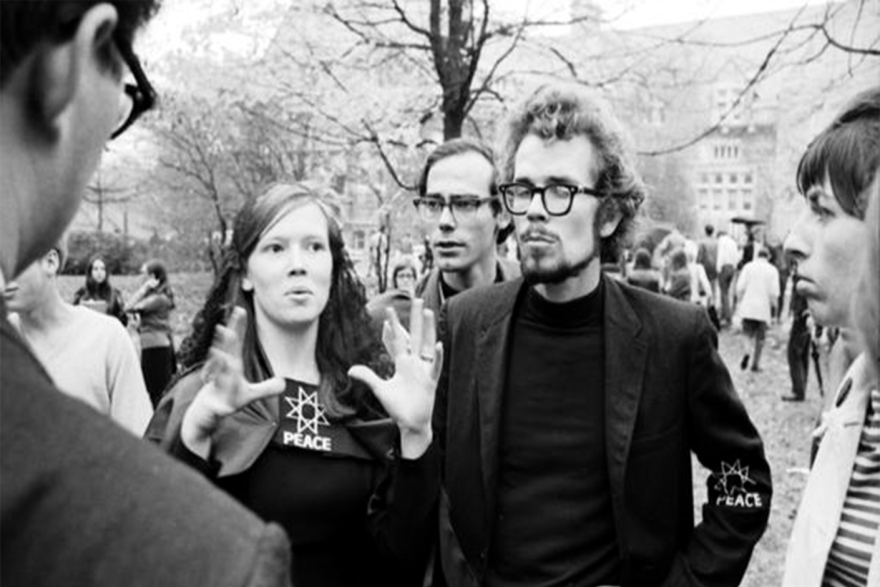Indiana University alumnus and anti-Vietnam War protester Guy Loftman has been joining demonstrators for candlelight vigils for free speech at the Sample Gates on Sunday nights.
Protesters host the vigils around 11 p.m., intentionally violating IU’s expressive activity policy. The policy bans protests between 11 p.m. and 6 a.m. Loftman spoke at the vigils, saying IU’s policy is unconstitutional. He is the only community member to be cited so far.
IU has cited about 20 of the demonstrators, including Loftman. He was cited last week in a letter from Anthony Prather, IU vice president and general counsel. Loftman met with Prather Sept. 30.
In the letter, Prather said any further violation will result in “immediate action by Indiana University including but not limited to citation and/or trespass.” Loftman has already violated the policy again and plans to attend Sunday’s protests.
Read more: IU threatened to fire employee for defying ‘expressive activity’ policy with vigil
Loftman, a retired criminal attorney, said he’s prepared to be arrested. But he said IU seems hesitant to act against him. Unlike faculty, staff and students, Loftman said as a community member, IU can’t “bully” him.
“I can maybe call their bluff,” Loftman said. “Say, ‘Are you really willing to enforce this policy through the criminal law?’ And so far, it looks to me that they are not willing to do it.”
IU officials declined comment on individual conduct cases but said the policy will be enforced.
Provost Rahul Shrivastav said in a Sept. 17 Bloomington Faculty Council meeting that it will take time to work through “the many gray areas or unintended consequences” of the expressive activity policy.
Read more: ACLU sues IU again for expressive activity policy
Shrivastav said IU President Pamela Whitten agreed to review the policy in spring 2025.
“As with any policy, if you're publicly known to be intentionally violating it, you should expect it to be enforced,” Shrivastav said at the meeting with faculty. “That is our job and the Board of Trustees’ expectations for all of us. Questions and complaints about the policy are for the board and their counsel.”
In 1965, Loftman helped organize IU’s first protests against the Vietnam War in Dunn Meadow. Shortly after he helped create IU’s chapter of Students for a Democratic Society. He was called the first “radical” student body president in 1967, Loftman said, because he was an “anti-war hippie.”
Loftman’s protesting and organizing led to Dunn Meadow’s designation as a free speech zone at IU. About 50 years later, that policy would be overturned last year, when IU leaders met in an ad hoc committee hours before students pitched tents in Dunn Meadow.The students, led by the IU Divestment Coalition, joined a national organizing effort to support Palestine.
Indiana State Police arrested 57 protesters in April. One of Loftman’s long-time friends was knocked down and bruised, he said, after she tried to protect a student.
Read more: ISP Leader on IU protests: 'If in fact, we have to come back, then we will'
“I thought it was the worst thing that I'd ever seen at IU,” Loftman said. “And then when they started enforcing this, this 11 p.m. curfew on free speech, it deeply offended me.”
In response to the encampment protests, IU’s Board of Trustees approved the current expressive activity policy. The encampment ended after 100 days, just before the policy went into effect. The trustees said the policy protects campus safety.
“The people they should care about the most and protect the most are their faculty and students, but they're the ones they're punishing,” Loftman said about IU’s administration. “They don't seem to understand that this is a community. They seem to think it's us against them.”
Aubrey is our higher education reporter and a Report For America corps member. Contact her at aubmwrig@iu.edu or follow her on X @aubreymwright .





